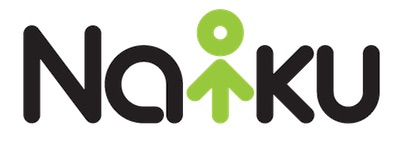In recent years, formative assessment has been the “it” topic in education. It is what everyone is talking about. It is what everyone is trying to implement. It is what many have hailed as the way to save our schools.
Why is it so important?
In the simplest of terms, it works! Students learn! The practice of formative assessment is shown to produce substantial learning gains for students.
Paul Black and Dylan Wiliam in 1998 brought about this re-emergence of formative assessment as an effective instructional practice in their review paper on the practice and effectiveness of formative assessment. In their review, they concluded that the student learning gains garnered by formative assessment were amongst the largest ever reported for educational interventions.
This is why it is the talk of education.
But what is it?
It is described by Black and Wiliam (1998b) in general terms as assessments:
“…all those activities undertaken by teachers – and by their students in assessing themselves – that provide information to be used as feedback to modify teaching and learning activities. Such assessment becomes formative when the evidence is actually used to adapt the teaching to meet student needs.”
Others define it slightly differently. An often cited definition provided by the CCSSO FAST SCASS in 2007 follows:
“Formative assessment is a process used by teachers and students during instruction that provides feedback to adjust ongoing teaching and learning to improve students’ achievement of intended instructional outcomes.”
Popham (2009) defines it in the following terms:
“Formative assessment is not a test. Rather, it is an ongoing process in which teachers use test-elicited evidence to adjust their instruction or students use it to adjust their learning tactics.”
Here’s how Brookhart (2007) defines it:
“Formative assessment is a systematic process to continuously gather evidence about learning. The data are used to identify a student’s current level of learning and to adapt lessons to help the student reach the desired learning goal.”
What others are saying about it?
“The power of formative assessment comes from the addition of student-to-teacher communication.” – Brookhart, Moss, and Long (2008)
“Formative assessment contributes to student ownership of learning more than any other classroom-based practice.” – Brookhart, Moss, and Long (2008)
“If formative assessment is to be productive, pupils should be trained in self-assessment so that they can understand the main purposes of their learning and thereby grasp what they need to do to achieve.” – Black and Wiliam (1998)
“Teachers must understand that we’re talking about a test-supported process instead of a test.” – Popham (2009)
What does Naiku say about it?
Some say that formative assessment has to occur during instruction. Others do not. At Naiku, we are not particularly excited by debating the nuances in the definition of formative assessment. We believe in the benefits of formative assessment. We believe they work. We are convinced by the vast supporting research data.
What we are excited by is the opportunity to leverage the power of technology to bring forth the full benefits of formative assessment. At Naiku, we believe that the teacher-student learning connection is the most important touch-point in education. We believe that we can transform this connection by giving teachers and students tools, powered by technology, to re-connect and become engaged partners in this connection.
We are excited to build and give teachers and students tools that:
- make the assessment creation process easier and more intuitive for teachers
- give teachers access to information about their students in a way they never had before
- make the test taking process more engaging for students
- make the students active partners in the learning process
- give both students and teachers the power to communicate and connect.
This is what excites us!
Technology and Formative Assessment
Technology, if used properly, can greatly improve the formative assessment process for both teachers and students. Technological tools, both hardware and software, should give both teachers and students the following benefits.
Increase Teacher Efficiency
With the right tools, teachers can spend less time creating, administering, and grading tests. If your teachers are using paper-based testing, consider the amount of time that can be saved just in test creation and grading. Next, consider the information that is lost with just a “percent correct” score, rather than with longitudinal, item, assessment, and classroom-level data.
Increase Student Engagement
Using devices such as notebooks, classroom response clickers, iPads, and iPods to deliver formative assessment activities engages the students in the process. While these devices can be used for far more than testing (students can better interact, collaborate, and communicate), formative assessment would be a proven way to initially leverage such technology.
Resources
For more information on formative assessment, please consult the following resources:
Black, P. J. & Wiliam, D. (1998a). Assessment and classroom learning. Assessment in Education: Principles, Policy and Practice, 5, 7-73.
Black, P. J. & Wiliam, D. (1998b). Inside the black box. Raising standards through classroom assessment.Phi Delta Kappan, 80, 139-148.
Black, P. J., Harrison, C., Lee, C., Marshall, E., & Wiliam, D. (2004). Working inside the black box: Assessment for learning in the classroom. Phi Delta Kappan, 80(1), 9-21.
Brookhart, S. M. (2007). Formative assessment: What do teachers need to know and do? Phi Delta Kappan, 89(2), 140-145.
Brookhart, S. M. (2009). Editorial: Special issue on the validity of formative and interim assessment. Educational Measurement: Issues and Practice, 28(3), 1-4.
Brookhart, S., Moss, C., & Long, B (2008). Formative assessment that empowers. Educational Leadership, 66(3), 52-57.
Heritage, M. (2007). Formative assessment: What do teachers need to know and do? Phi Delta Kappan, 89, 140-145.
Heritage, M. (2010). Formative Assessment: Making it happen in the classroom. Thousand Oaks, CA: Corwin Press.
Popham, J. (2009). A process – not a test. Educational Leadership, 66(7), 85-85.

